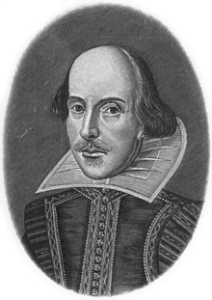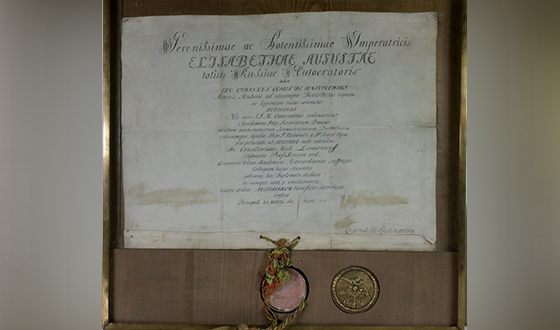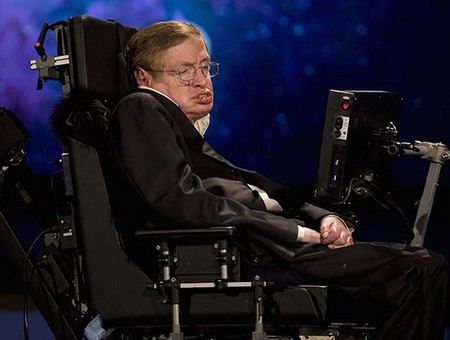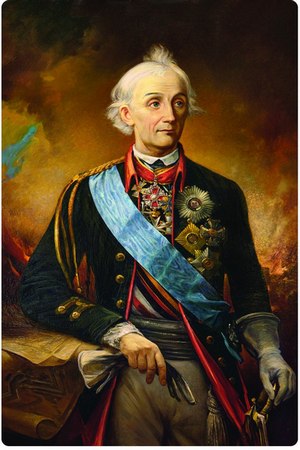William Shakespeare
 Shakespeare (Shakespeare) William (23.4. 1564, Stratford-on-Avon, – 23.4.1616, ibid.), English playwright and poet. Rod in the family of an artisan and merchant John S. He studied at a grammar school, where he learned Latin and the basics of the ancient Greek language. Since the late 1580s. – an actor (left the scene around 1603) and playwright in London. Since 1594 shareholder of the theater troupe “Lord Servant of the Chamberlain” (since 1603 – the troupe of the king). Around 1612 returned to Stratford. The scarcity of biographical information gave rise to the role of the author of his works F. Bacon, Counts Retland, Oxford, playwright K. Marlo and others. However, a careful study of the cultural life of the era and creativity Sh. Reveal the scientific inconsistency of these hypotheses. Poetic fame W. brought the poem “Venus and Adonis” (1593) and “Lucretia” (1594), developed the tradition of the philosophical lyricism of the Renaissance. Between 1592 and 1600 created (published in 1609) 154 sonnets. Their plot story – the relationship of a lyrical hero with a friend (1-126) and a lover (127-152) – is apparently autobiographical, themes and motifs are typical of Renaissance poetry, but a more complex perception of life and man in Sonnets already promises Shakespeare’s dramaturgy.
Shakespeare (Shakespeare) William (23.4. 1564, Stratford-on-Avon, – 23.4.1616, ibid.), English playwright and poet. Rod in the family of an artisan and merchant John S. He studied at a grammar school, where he learned Latin and the basics of the ancient Greek language. Since the late 1580s. – an actor (left the scene around 1603) and playwright in London. Since 1594 shareholder of the theater troupe “Lord Servant of the Chamberlain” (since 1603 – the troupe of the king). Around 1612 returned to Stratford. The scarcity of biographical information gave rise to the role of the author of his works F. Bacon, Counts Retland, Oxford, playwright K. Marlo and others. However, a careful study of the cultural life of the era and creativity Sh. Reveal the scientific inconsistency of these hypotheses. Poetic fame W. brought the poem “Venus and Adonis” (1593) and “Lucretia” (1594), developed the tradition of the philosophical lyricism of the Renaissance. Between 1592 and 1600 created (published in 1609) 154 sonnets. Their plot story – the relationship of a lyrical hero with a friend (1-126) and a lover (127-152) – is apparently autobiographical, themes and motifs are typical of Renaissance poetry, but a more complex perception of life and man in Sonnets already promises Shakespeare’s dramaturgy.
Shakespeare’s Canon includes 37 pieces; 18 appeared during the life of Sh., 36 were printed in the first collection of works by Sh. (1623, Pericles did not enter). Attempts to establish the chronology of W. creativity began from the second half of the 18th century. Below is a list of plays by S. with the dates of their writing, with periodization of creativity and the genre definitions adopted in Shakespeare’s criticism.
The first period (1590–94). Early Chronicles: “Henry VI”, Part 2 (1590); Henry VI, Part 3 (1591); Henry VI, Part 1 (1592); “Richard III” (1593). Early comedies: “The Comedy of Errors” (1592), “The Taming of the Shrew” (1593). Early tragedy: “Titus Andronicus” (1594).
The second period (1595-1600). Chronicles close to the tragedy: “Richard II” (1595); “King John” (1596). Romantic comedies: “Two Verona” (1594); “The fruitless efforts of love” (1594); “A Midsummer Night’s Dream” (1596); The Venetian Merchant (1596). The first mature tragedy: “Romeo and Juliet” (1595). Chronicles close to the comedy: “Henry IV”, Part 1 (1597); “Henry IV”, part 2 (1598); “Henry V” (1598). Vertex creatures of Sh.-komediograf: “Much Ado About Nothing” (1598); “Windsor pranks” (1598); “As you like it” (1599); “The Twelfth Night” (1600).
The third period (1600— 08). Tragedies that marked a turning point in the work of Sch.: “Julius Caesar” (1599); Hamlet (1601). “Dark Comedies” (or “Problem Plays”): “Troilus and Cressida” (1602); “The end is a crown” (1603); “Measure for Measure” (1604). The pinnacle of the tragedy of S.: Othello (1604); King Lear (1605); Macbeth (1606). Ancient tragedies: “Anthony and Cleopatra” (1607): “Coriolan” (1607); “Timon of Athens” (1608).
The fourth period (1609-13). Romantic tragicomedy: “Pericles” (1609); Cymbeline (1610); “Winter’s Tale” (1611); The Tempest (1612). Late Chronicle: “Henry VIII” (1613; possibly with the participation of J. Fletcher).
Outside the canon: “Edward III” (1594–95; authorship is doubtful); “Thomas More” (1594–95; one scene); “Two noble relatives” (1613, together with Fletcher). Some Shakespearers (including the Soviet ones – A. A. Smirnov) divide the creative work of Sh. Into three periods, uniting the 1st and 2nd (1590-1600) into one.
Creativity Sh. Absorbed all the most important radiation of the Renaissance – aesthetic (synthesizing traditions and motifs of popular romantic genres, Renaissance poetry and prose, folklore, humanistic and folk dramas) and ideological (demonstrating the entire ideological complex of time: traditional ideas about world order, the views of defenders feudal-patriarchal structure and political centralization, motives of Christian ethics, Renaissance Neo-Platonism and Stoicism, ideas of sensationalism and macabiallism, etc.). This synthetic character, combined with a comprehensive coverage of life phenomena and characters, determined the vital fullness of Sh .’s creations. But at different stages of Sh .’s career, reality in his works appeared to be different faces and in different lighting. The ideology of humanism in conjunction with the ideals and aspirations of the people has always remained the basis of the plays of Sh. However, it was not by chance that the genius of Sh. Was most fully expressed in drama, which in its essence more than other forms of art is capable of conveying the drama of life. The socio-economic processes that caused the cultural revolution, called the Renaissance, in England began later and went faster than on the continent. The contradictions and contrasts of the epoch were revealed more sharply and swiftly, and the milestones of the development of humanistic thought (confidence in the near triumph of humanistic ideals – and the rejection of it, the time of hope – and disappointment), separated for example in Italy by centuries.



